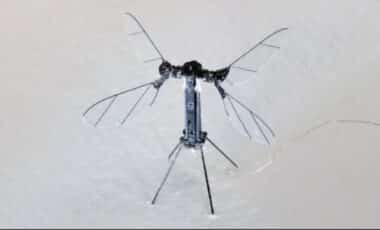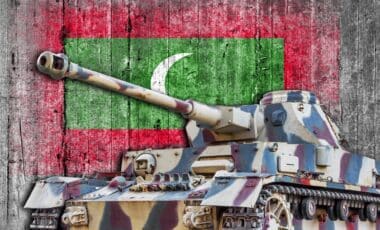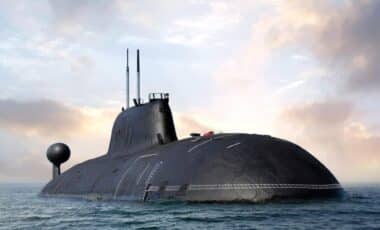Being there . . . . for the longest-running campaign of World War II, the Battle of the Atlantic. Asbleak as things were for Great Britain and her Allies in the first year and a half of that SecondWorld War, the Royal Navy never once doubted it would prevail against Germany’s surfacefleet. In the South Atlantic, heroism comingling with tragedy was almost routine, i.e., the Sagaof the River Plate off Montevideo on December 17, 1939, triggering the initial stage whichdidn’t necessarily please the Fuhrer. His 16,000-ton pocket battleship Graf Spee trapped nearBuenos Aires had been scuttled by its own German crew who faced internment throughout thewar. Three nights later, with his beloved ship still ablaze, Captain Hans Langsdorff, who hadsunk 9 British vessels searching for him, took his own life. Hitler told confidants the aging WWIcaptain was a coward who should have risked the ship and its 1,000-man crew by blasting outof port into the Atlantic.Later, Erich Raeder, Grand Admiral and Commander in Chief of the Kriegsmarine (GermanNavy), clearly knew what all in Hitler’s entourage understood but would dare not mention: theGerman fleet surface forces were heavily outnumbered by the Royal Navy. “Our sailors can dono more than show that they know how to die gallantly.” It seems the Fuhrer knew all along hehad no real Navy other than a battleship or two. Controlling the prized English Channel wascertainly out of the question. Sure, he had an exceptional U-boat fleet, but, by 1942, Alliedadvances in underwater detection and advances were sinking more and more of those U-boatgems. In short, he controlled almost no salt water other than that which rimmed Deutschlandto the North. “So what?”, smiled Churchill. “A short run, skip, and a hop by my RAF will handlethose boats.”AN ERUDITE AND ELEGANT NEW STUDY ON THE LONGEST CAMPAIGN OF WORLD WAR II HASARRIVED HOT OFF THE CASEMATE PUBLISHERS’ PRESSES JUST IN TIME FOR ADVANCCHRISTMAS PURCHASE – – THE BATTLE FOR THE ATLANTIC. THE LONG, STILL-CONTINUINGHISTORY OF IT IS YET UNDERWAY, AND SOME CURRENTLY IN PUBLICATION FOR SALE INOCTOBER AND NOVEMBER. A FEW WILL EVEN BE MORE LAVISHLY ILLUSTRATED. BUT NOAUTHOR TODAY CAN MATCH BRIAN E. WALTER’S TOUR DE FORCE, HIS FEAT OF STRENGTH ORSKILL, HIS ADROIT, INGENIOUS ACCOMPLISHMENT: A HISTORY SO RIVETING AND DEMANDINGTHE READER, ALONG WITH ALL FREEDOM-LOVING PEOPLE, HOLD THEIR BREADTH FOR THEOUTCOME. AFTER ALL, OUR FUTURE, HANGING IN THE BALANCE, WAS AT STAKE. A MUSTREAD. ONCE AGAIN, BRITAIN’S MARITIME SERVICES ANSWERED THE CALL OF HISTORY ANDWENT FORTH TO DO THEIR DUTY.Don DeNevi highly, highly recommends two immediate Christmas gift purchases, one for theloved person, and the other for the self . . . .“THE LONGEST CAMPAIGN – – Britain’s Maritime Struggle in the Atlantic and Northwest Europe,1939 – 1945”, by Brian E. Walter. CASEMATE PUBLISHERS, Havertown, PA 19083: 2020,reprinted 2024, 332 pages, hardcover, 6 ½” x 9 ¼”, $34.95. Visit, www.casematepublishers.com,
or Email, casemate@casematepublishers.com.
Every day from September 3, 1939, when Britain and her colonies, along with France,Australia and New Zealand declared war on Germany, the British survived as a nation untilHitler’s suicide on April 30, 1945. That victory was a major victory for us, all of us who arecivilized. Was the winning of the Battle of Atlantic the most important victory of WW? Ofcourse, it was. And so was winning the skies over Britain, NAY, the whole British Isles, especiallyShetland. Thank God for Brian Walter whose writing is always nonpareil. He lives in Minnesota.Pull up his honors and learn for yourself. Then, for Heaven’s Sake, thank Casemate forpublishing books like Brian’s, those which provide new angles and unique analyses in theeffectiveness of the British maritime effort and the essential role it played in bringing about the
overall Allied victory so beautifully narrated here.








